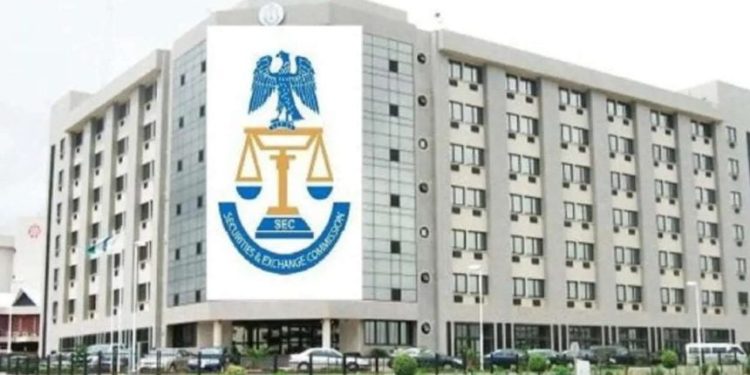The directive was announced by the SEC Director-General, Emomotimi Agama, during the Journalists’ Academy 2025 held in Lagos on Wednesday. The event, themed “The ISA 2025 and the Future of Nigeria’s Capital Market: Innovation, Protection and Growth,” highlighted the regulatory expectations and the transformative nature of the new Act.
Agama, represented by the SEC Commissioner of Operations, Bola Ajomale, said the Act establishes a stronger regulatory foundation for Nigeria’s capital market and places clear responsibilities on all operators to meet updated compliance standards.
He emphasised that anyone offering a tradable instrument must register with the Commission and complete the mandatory process before the January 2026 deadline.
“If we get this right, ISA 2025 will serve as the powerful foundation for the capital market Nigeria needs and deserves: deep, efficient, innovative and globally competitive,” Agama said. “The ISA 2025 is more than a replacement for the 2007 Act. It is a forward-looking instrument designed to reposition Nigeria’s capital market for a rapidly changing world.”
According to him, the ISA 2025 enhances investor protection, empowers market operators and strengthens the SEC’s ability to ensure transparent and fair market practices.
Agama noted that the reform was necessitated by the rapid growth of digital trading, fintech innovations and virtual asset platforms. ISA 2025, he said, aligns Nigeria’s capital market with global best practices while addressing local challenges such as systemic risks and the proliferation of unregulated investment schemes.
One of the major advancements in the Act is the clearer definition of the SEC’s mandate. For the first time, the Act explicitly spells out the regulatory objectives, functions and powers of the Commission—ranging from investor protection and market transparency to preventing unlawful practices and supporting capital formation.
Agama stated that this clarity enhances institutional accountability and removes the ambiguities that previously hindered enforcement actions.
According to the SEC DG, the Act greatly expands the Commission’s investigative capacity. This includes the power to investigate not only regulated entities but also unrelated third parties when necessary for enforcement.
“This closes a major loophole that hindered previous investigations into market abuse and complex financial schemes. Such provisions signal that the SEC is no longer limited by outdated definitions or narrow supervisory boundaries,” he said.
He added that ISA 2025 provides the SEC with modern tools needed to safeguard market integrity and protect investors in an era of fast-evolving financial technologies.
Agama described the new Act as a collective national resolve to modernise the country’s capital market structure. He explained that several factors made the reform necessary, including:
- The rise of digital trading, fintech and virtual assets
- The inadequacies of the 2007 Act in addressing Ponzi schemes and systemic risks
- The need for alignment with International Organization of Securities Commissions (IOSCO) standards
- The urgency to deepen Nigeria’s capital market to support economic development
He said the reforms position the capital market as a stronger vehicle for innovation, long-term financing and national economic growth.















